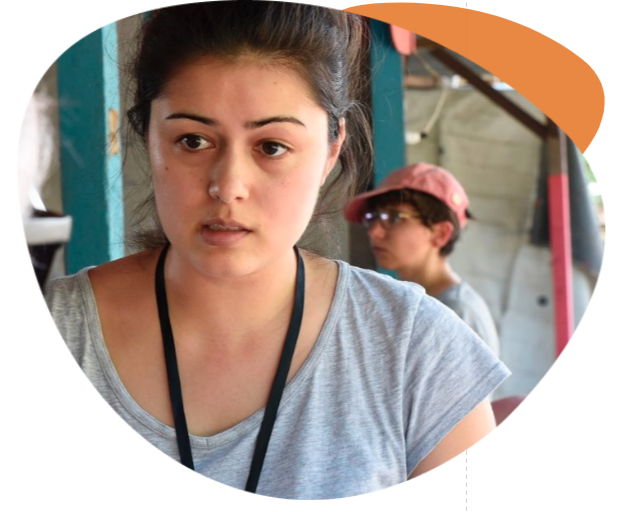Studying Humanitarianism - A Course Audit of Master's Degree Programs in Humanitarian Action
DOI:
https://doi.org/10.21153/thl2021volno0art1031Keywords:
Humanitarian studies, Human displacement, Humanitarian aid, Course curriculum, Tertiary educationAbstract
Humanitarian emergencies are increasing globally and the world is facing the worst human displacement crisis since the end of World War II. The number of forcibly displaced people due to conflict, violence, severe weather events and complex emergencies has reached a record high of approximately 70 million. The United Nations estimates that 235 million people will urgently require humanitarian assistance in 2021 at a cost of approximately US$35 billion. The increase of emergencies as well as the expansion of the humanitarian sector are accompanied by growing levels of professionalisation. The past few decades are characterised by humanitarian reforms, and the emergence of new codes, standards and frameworks to provide improved, better coordinated humanitarian aid. The increasing professionalisation of humanitarian aid is also reflected in the rapid growth of professional training and formal education. University courses in the field of ‘humanitarian action’ are multiplying around the globe. This is especially the case at a master’s level and most visible in the ‘Global North’. Despite this trend, there is no universal agreement on a core course curriculum in Humanitarian Studies. This working paper surveys 23 ‘humanitarian action’ master’s degree programs offered in the US, the UK, Europe, Australia and Nigeria to identify key commonalities across courses. This paper does not put forth a proposal of how a core curriculum should look like; rather, it highlights core commonalities across programs. Findings presented in this working paper are preliminary and contribute to the understanding of what could qualify as part of a ‘core curriculum’.
Downloads
References
ALNAP (Active Learning Network for Accountability and Performance in Humanitarian Action) 2010, The State of the Humanitarian System. ALNAP Study, ALNAP/ODI (Overseas Development Institute), London.
ALNAP (Active Learning Network for Accountability and Performance in Humanitarian Action) 2018, The State of the Humanitarian System. ALNAP Study, ALNAP/ODI (Overseas Development Institute), London.
CBHA (Consortium of British Humanitarian Agencies) 2012, Core Humanitarian Competencies Framework, retrieved from https://www.alnap.org/help-library/core-humanitarian-competencies-framework
Find A University Ltd. 2020, Find a masters, retrieved from https://www.findamasters.com
GHD (Good Humanitarian Donorship) 2016, About GHD, retrieved from: https://www.ghdinitiative.org/ghd/gns/aboutus/about-ghd.html
Graduate Prospects Ltd. 2020, Prospects. Find a postgraduate course, retrieved from https://www.prospects.ac.uk
James E 2016, ‘The professional humanitarian and the downsides of professionalisation’, Disasters, 40(2):185–206, doi:10.1111/disa.12140
Johnson K, Idzerda L, Baras R, Camburn J, Hein K, Walker P and Burkle FM 2013, ‘Competency-based standardized training for humanitarian providers: making humanitarian assistance a professional discipline’, Disaster medicine and public health preparedness, 7(4):369-372, doi:10.1017/dmp.2013.10
Maxwell D and Gelsdorf K 2019, Understanding the humanitarian world, Routledge, New York.
OCHA (United Nations Office for the Coordination of Humanitarian Affairs) 2020, Global humanitarian overview 2021, retrieved from https://reliefweb.int/sites/reliefweb.int/files/resources/GHO2021_EN.pdf
Rainhorn JD Smailbegovic A and Jiekak S 2010, University training and education in humanitarian action, Geneva Center for Education and Research in Humanitarian Action, Geneva.
ReliefWeb 2020, Jobs, retrieved from https://reliefweb.int/jobs
Studyportals Masters 2020, Never stop learning. Discover thousands of Master’s degrees worldwide, retrieved from https://www.mastersportal.com
Sphere Project 2011, Sphere Handbook: Humanitarian Charter and Minimum Standards in Humanitarian Response, 3rd ed., Practical Action Publishing, Rugby.
Sphere Project 2018, Sphere handbook: Humanitarian Charter and Minimum Standards in Humanitarian Response, 4th ed., Practical Action Publishing, Rugby.
UNHCR (The Office of the United Nations High Commissioner for Refugees) 2019, Figures at a Glance, retrieved from https://www.unhcr.org/en-au/figures-at-a-glance.html
Walker P Maxwell DG 2009, Shaping the humanitarian world, Routledge, New York.







